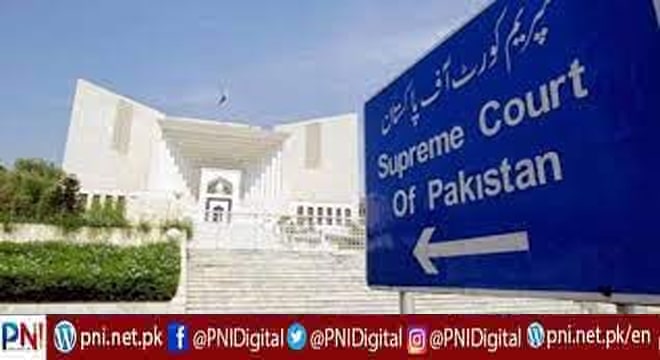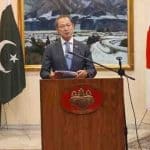ISLAMABAD, Aug 15 (APP): The Supreme Court on Monday heard the petition of Mutthida Qaumi Movement Pakistan (MQM-P) against the delimitation of constituencies for the second phase of local government elections pleading the court to declare Article 10 (1) of the Sindh Local Government Act as null and void.
A three-member SC bench comprising Chief Justice of Pakistan Umar Ata Bandial, Justice Mansoor Ali Shah and Justice Munib Akhtar heard the case filed by Khalid Maqbool Siddiqui and others against the Government of Sindh regarding delimitation of constituencies for the LB elections.
During the course of proceedings, Justice Mansoor Ali Shah said LG elections had been held in some areas of Sindh.
Dr Farogh Naseem, counsel for the MQM-P, said the Election Commission of Pakistan had announced a schedule to conduct the LG elections in two phases. In the first phase, LG elections were held across Sindh, except Karachi, Hyderabad, Badin and Thatta.
He said his client had objections to delimitations. He claimed that the Sindh government had formed one union council of 90,000, where the MQM-P had the majority, and on the contrary constituted another of 30,000 with the Pakistan Peoples Party having majority supporters.
Such constituencies would reduce the MQM-P votes for the mayoral election, he added.
Justice Mansoor said according to Form 10A, delimitation of constituencies was to be done by the ECP. He asked the counsel how his client was affected by the delimitation of constituencies. He also asked him to specify the parameters of constituencies before displaying their chart.
CJP Bandial observed that objections against the delimitation of constituencies were raised by the MQM-P after the first phase of polling and also heard by the ECP, which had reserved its decision.
Justice Mansoor asked as to why the delimitation authority was not approached. The counsel replied that the MQM-P had challenged the delimitation or zoning authority itself as two out of three members of the Constituency Committee were from the provincial government.
Justice Mansoor said there was no restriction in the law that a provincial officer could not join the committee.
The chief justice said one party was popular in one street while another had popularity in another street. The delimitation of constituency at street and neighbourhood level could not be done without local officers, while the ECP did not have enough staff for the purpose.
The counsel said the MQM-P had majority support in Orangi Town where a union committee consisting of 94,000 people was formed while in Mominabad a union committee comprising of 44,000 people was constituted. The population ratio could not vary by more than 10 percent, he added.
He said the Sindh Government notified the formation of 233 union committees under Section 10 (1) of the Local Government Act. However, it did not clarify the basis for forming union committees in the notification, he added.
He pleaded the Supreme Court to declare Article 10 (1) of the Sindh Local Government Act as null and void.
Upon this, the CJP said the court would hear the Election Commission on that point.
Justice Mansoor asked the ECP’s representative as to how the ECP was bound to follow the provincial government in the delimitation process. The Election Commission had the authority under the Election Act to delimit constituencies, he added.
The ECP’s Director General Law said the number of union councils was decided by the provincial government while the ECP was bound by the delimitation of the province and the fixed number of union committees.
The Chief Justice asked whether the Election Commission carried out delimitations differently in different provinces
Justice Mansoor said the Election Commission should not integrate its constitutional powers into the local government laws.
Subsequently, hearing of the case was adjourned till Tuesday.
Follow the PNI Facebook page for the latest news and updates.









